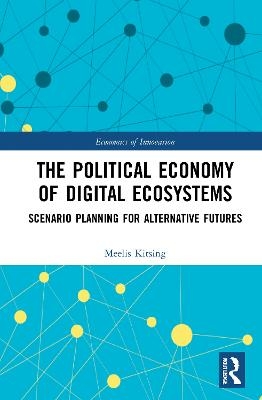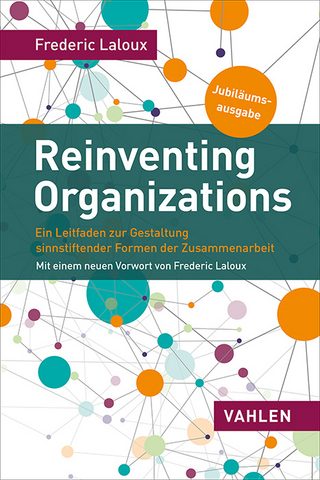
The Political Economy of Digital Ecosystems
Routledge (Verlag)
978-0-367-65397-2 (ISBN)
This book connects political economy perspectives with scenario planning for mapping out future trajectories of digital ecosystems. The focus is purposefully on digital ecosystems as it encompasses economic, political and social contexts on a global, national and local level. The diversity of political economy approaches allows the author to explore alternative meanings of digital ecosystem development, which is particularly useful for envisioning alternative futures.
Often visions about the future of digital ecosystems suffer from a lack of imagination and confirmation bias which is favorable to the extrapolation of current trends. A wide range of political economy perspectives applied through positivist theorizing in this book shows different interpretations of developments in digital ecosystems. Scenario planning teams around the world have applied a collective imagination to show how future trajectories can be radically different from the current trends. The book outlines meta-scenarios for alternative futures of the political economy of digital ecosystems by reviewing and synthesizing the work of foresight teams. These meta-scenarios served as insights for developing four scenarios for European digital ecosystems through the workshops with high-level executives and experts. The scenarios identified the nature of EU cooperation and the development of digital infrastructure as key drivers.
These four scenarios developed in the workshops are further operationalized in a specific context by exploring the implications for Estonia as well as for Chinese investments in European platforms. This exercise shows how scenarios of digital ecosystems can be used for stress-testing decisions and strategies. Decision-makers, students, scholars and other stakeholders in a wide range of industries ranging from academia to ride-sharing can use the scenarios for reframing different development trajectories and future-proofing their strategies. The scenarios can be further developed and modified for specific purposes and contexts as they are not written in stone.
Meelis Kitsing is Rector and Professor of Political Economy at the Estonian Business School (EBS), a nonprofit private university with campuses in Tallinn, Estonia, and in Helsinki, Finland. Previously, he served in different analysis and strategy-focused positions for the Estonian government and taught at numerous universities in Europe and the US. He received his PhD from the University of Massachusetts Amherst and his master’s degrees from the Fletcher School at Tufts University and London School of Economics.
1. Introduction 2. The Emergence of Digital Ecosystems 3. Global Political Economy of Digital Ecosystems 4. Multilevel Formal and Informal Governance of Digital Ecosystems 5. Scenario Planning for Global Political Economy 6. Alternative Scenarios for Digital Ecosystems 7. Alternative Futures for European Digital Ecosystems 8. Implications for Estonia 9. Implications for the Chinese Investments into European Digital Platforms
| Erscheinungsdatum | 20.08.2021 |
|---|---|
| Reihe/Serie | Routledge Studies in the Economics of Innovation |
| Zusatzinfo | 8 Tables, black and white; 7 Line drawings, black and white; 7 Illustrations, black and white |
| Verlagsort | London |
| Sprache | englisch |
| Maße | 156 x 234 mm |
| Gewicht | 367 g |
| Themenwelt | Technik |
| Wirtschaft ► Betriebswirtschaft / Management ► Planung / Organisation | |
| Wirtschaft ► Betriebswirtschaft / Management ► Unternehmensführung / Management | |
| Wirtschaft ► Volkswirtschaftslehre ► Makroökonomie | |
| Wirtschaft ► Volkswirtschaftslehre ► Wirtschaftspolitik | |
| ISBN-10 | 0-367-65397-4 / 0367653974 |
| ISBN-13 | 978-0-367-65397-2 / 9780367653972 |
| Zustand | Neuware |
| Haben Sie eine Frage zum Produkt? |
aus dem Bereich


